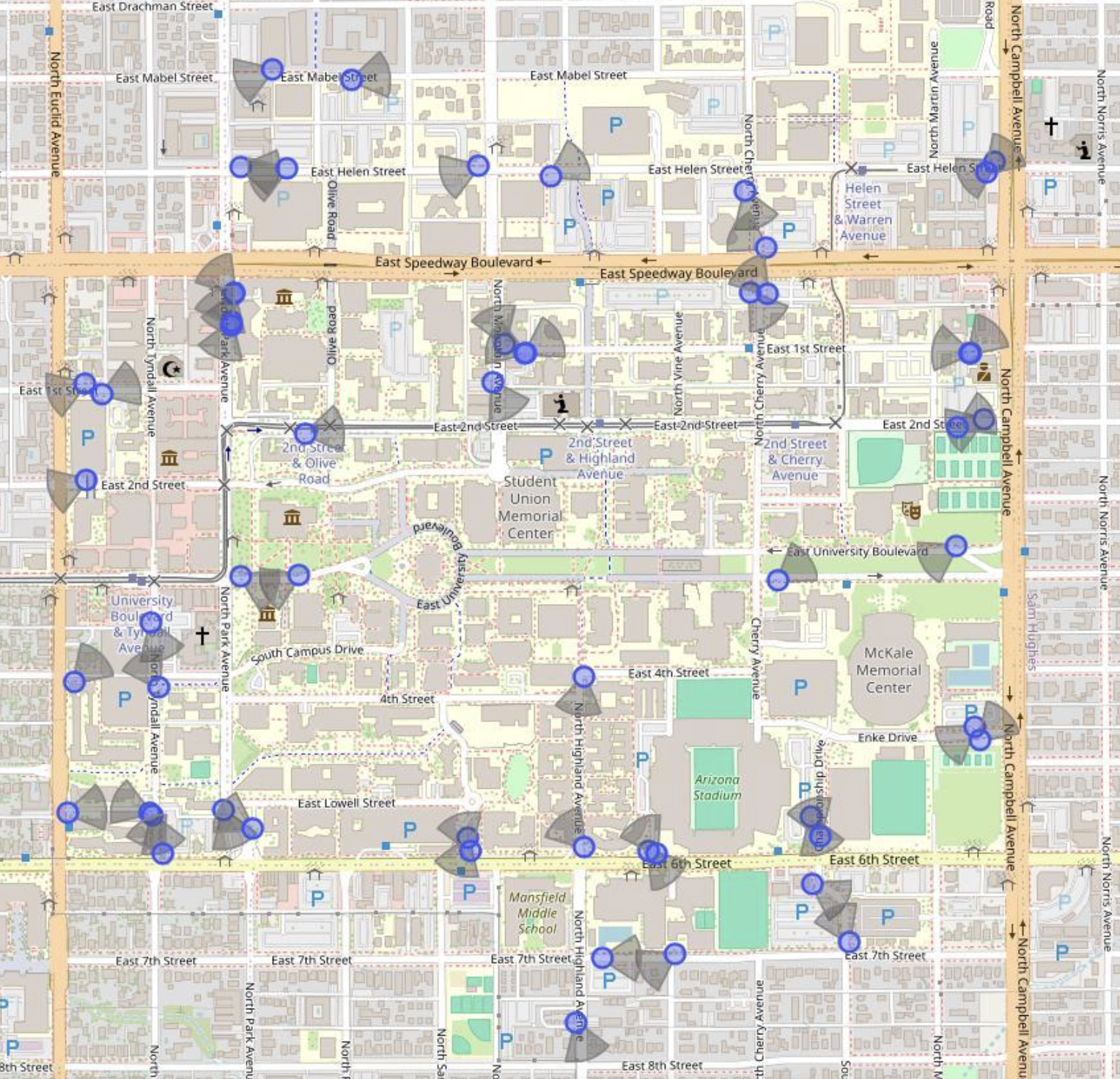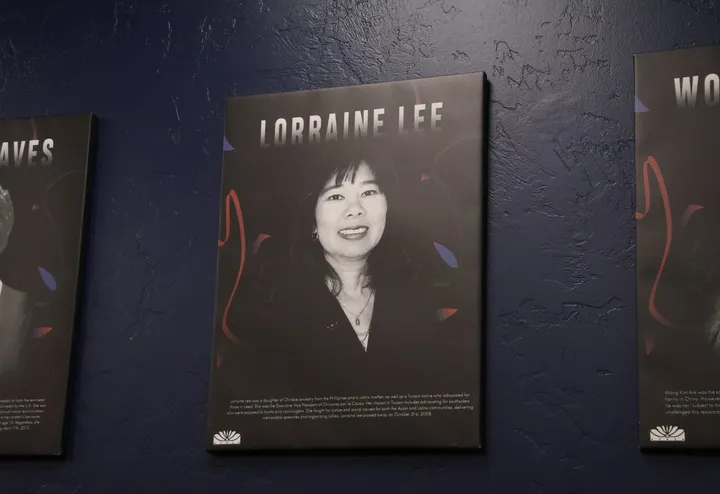UA approved $870K Flock Safety deal for campus surveillance
The University of Arizona approved a five-year, $870,000 deal with Flock Safety to install 62 license plate–reading cameras, while South Tucson weighs ending its own contract over privacy concerns.

The University of Arizona quietly entered into a $870,000, five-year contract with Flock Safety to install cameras across campus earlier this year, records show.
The agreement, obtained by Tucson Spotlight through a public records request, was signed in February by then–Chief Procurement Officer Ted Nasser, who retired in April. It commits the university to annual payments of roughly $160,000 for Flock’s automated license plate reader system.
The agreement covers 62 license plate recognition cameras and access to the company’s FlockOS platform, which connects agencies nationwide. The system allows university police to search for vehicles by make, color and identifying features such as bumper stickers or roof racks, and to receive real-time alerts tied to the FBI’s National Crime Information Center and the National Center for Missing & Exploited Children databases.
The contract also grants UA access to Flock’s “Community Network,” allowing the department to view feeds from private cameras operated by businesses, schools and homeowners associations that opt into the system. The agreement automatically renews each year unless canceled at least 30 days before expiration.
Flock, which markets itself as a “public safety technology company,” has faced national criticism from civil liberties groups for enabling mass surveillance and data sharing between police and private users. Under the company’s standard terms, footage is stored for 30 days unless downloaded by the agency, and Flock retains the right to analyze anonymized data for “crime-prevention efforts.”
The UA’s five-year purchase marks one of the largest public institution contracts with Flock in the state, following similar deals with Tempe and other municipalities.
While the UA is standing by its decision to partner with Flock — saying it will use Flock’s plate readers to identify registered sex offenders on campus, prevent vehicle theft and burglary, and catch incidents of hazing — another local agency is reevaluating its relationship with the company.

Earlier this month, the City of South Tucson discussed moving to terminate its own deal with the company in response to community concerns about privacy, data sharing and government surveillance.
During its Nov. 4 meeting, the South Tucson City Council discussed its contract with Flock, inviting a representative of the company to answer questions.
During the meeting’s public comment period, several residents expressed concerns about privacy, data sharing and the lack of public input or awareness.
“Community safety, when I think of what that means to me as a business owner and 15-year resident of South Tucson, I think of the work that you're doing,” Dwight Metzger told the council. “I think of housing security, taking care of people, taking care of the streets, the land here.”
Flock’s systems, Metzger said, are the antithesis of community safety.
“It's a part of a national network to surveil, track people, to be able to interrogate them, follow them, share information with increasingly fascist national government and increasingly dangerous local government that's about putting people in prisons and punishing them rather than letting them be in community,” he said.

In response to these concerns, the council agreed to take steps toward investigating, and if necessary, removing clauses in its contract with Flock that grant the company the right and license to disclose department data for investigative purposes.
“If you're surveilling people going to work every day, their patterns can be recognized in a database system,” said Jennifer Stern, a frequent patron of many South Tucson businesses. “Then if someone is targeted or criminalized for maybe being someone who is an immigrant, those people can be targeted and intercepted on their way to work. That's why we see so much footage of people and their abandoned vehicles on the side of the road in many different places all around the United States right now.”
The ACLU has criticized Flock’s informal assistance of Immigration and Customs Enforcement, citing a Media404 article from May that reported data showing the agency frequently taps into Flock’s networks.
Deportation and detention fears are also on the rise within the Tucson community, as footage of arrests and disappearances has surfaced across the country and in Southern Arizona.
The council said it would follow the ACLU’s guidelines for police use of automated license plate readers and would activate a transparency portal to provide information about how the data is used, what it’s used for and who has access.
Under these guidelines, all non-watchlisted license plate data will be deleted within seven days, instead of the standard 30. The council said these privacy standards will be maintained through random audits of the police department’s use of the Flock system by an outside watchdog.
The council will vote on terminating its contract during its next meeting. In the meantime, the city is exploring alternatives to Flock that would perform a similar function without compromising civil liberties.
Ruby Wray is a journalism and creative writing major at the University of Arizona and Tucson Spotlight intern. Contact her at rubywray@arizona.edu.
Tucson Spotlight is a community-based newsroom that provides paid opportunities for students and rising journalists in Southern Arizona. Please consider supporting our work with a tax-deductible donation.



